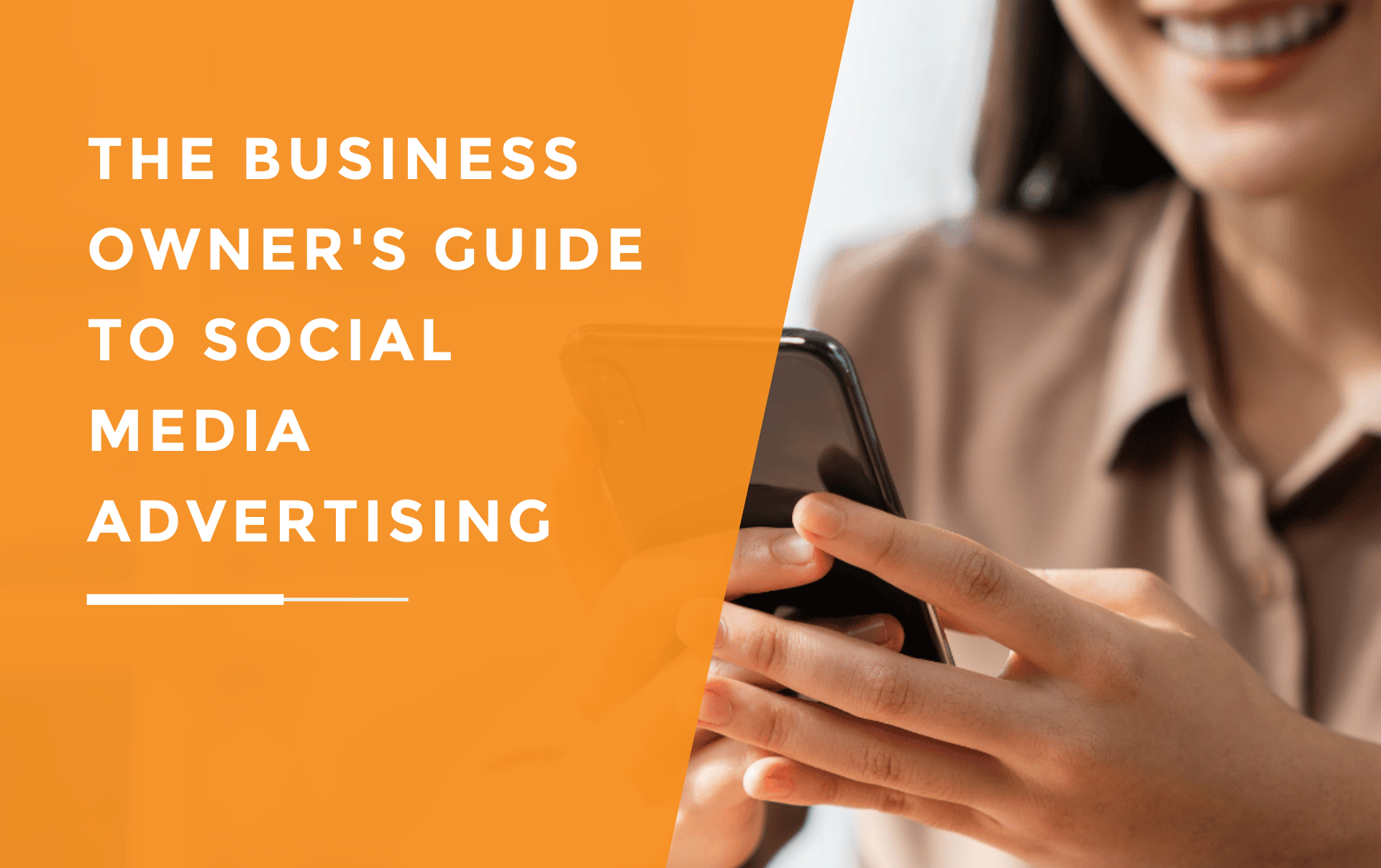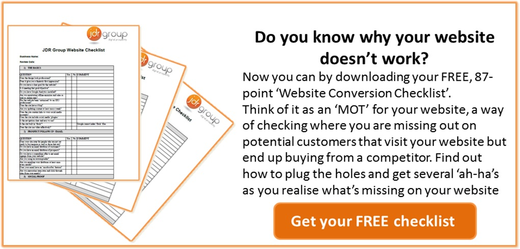6 'Social Proof' Strategies To Increase Website Conversion Rates
by Daniel Baker on 16-Jan-2014 03:02:00

Not that long ago marketers, entrepreneurs, artists and PR professionals relied on a few things to gain authority and influence. They needed to know the right people, get awards or accreditation and get press publicity.
Now there are a number of simple, clever digital marketing techniques that have more impact on your business reputation than ever before. They are called “social proof strategies”. By optimising social proof strategies, you can start attracting more conversions and revenue from your website instantly – while cutting out the middleman.
What is Social Proof?
As much as we don’t like to admit it, people naturally have a sheep mentality. We feel more comfortable being ‘normal’ and relying on others’ opinions. Social proof is a psychological theory where a person “looks to the actions of others as assurance (or proof) that the decision they intend to make is the correct one”.
Example: Robert Cialdini, author of Influence: The Psychology of Persuasion, did an experiment where one person looked up to the sky in a public place – to no obvious effect. But when more people started looking at the sky, many others did the same.
Lesson: In new situations, we look to others for confirmation on what is credible or how to act.
This basic principle can be seen in all kinds of social situations; especially on the Internet. Websites, blogs and Social Media websites let you subscribe, like, tweet and follow whoever, wherever and whenever you want. What better place to use social proof strategies?
Implementing Social Proof Online
Here are the best tried-and-tested social proof strategies and how to implement them. These have proven to be very effective marketing tools to get more conversions from your website.
Proof with numbers
This is probably the most powerful of the social proof strategies. It includes monitoring numbers of the following, then displaying them clearly on your website:
- Likes
- Tweets
- Followers
- Subscribers
- Purchases
- Downloads
- Views
- Shares
For example, blogs use RSS feed data to count the number of readers or subscribers, then display this on the website. Large numbers suggest that a lot of people found it a good quality, credible and entertaining blog, encouraging more visitors to read and subscribe! The same applies for getting people to buy, interact through your Social Media pages or complete any recordable action.
Proof with comments
A massive 84% of Generation Y say that user generated content influences their decision to buy. This fact alone means that adding comment sections, forums and feedback forms to your website is likely to be good news for conversion rates. By encouraging positive customer interaction on your website, you make your business seem honest, approachable and popular.
Of course in this case you have to prepare for negativity, so ensure you have boundaries in place and a well-regulated website.
Proof with reviews
This refers to customers who interact with your website purely to give opinions on your products and services. Publishing reviews/testimonials on your website - with the name of the person and business – act like mini sales pitches. If these are singing your praises, it’s no surprise that leads will be convinced to click and buy.
Aside from website reviews you should also prepare for customers to post on other review websites, so make sure your business operations are monitored and improved to avoid bad online publicity.
Reviews are effecting online marketing in a big way. 70% of customers say they trust online opinions, and it works for local businesses too. 52% said that positive online reviews made them more likely to use a local business.
Proof with logos
This is one social proof strategy that doesn’t require direct interaction from your customers. Clearly display logos from any of these sources, and you can boost website conversions through trust and credibility:
- customers/clients you have worked for
- your suppliers
- awards you have received
- accreditation you have received
- quality standards you have met
The logo types above usually work best at the side or in the header/footer of your website home page. When a visitor is new, they need to be convinced that what you sell is of a high standard and is dependable.
For example, www.wordstream.com includes previous clients’ logos at the bottom of the home page. Using well-known names gives an impression of authority.
Proof with SEO
SEO (Search Engine Optimisation) is another marketing tool that can be used as social proof for your website. With this low cost, long-term solution you can optimise the relevance of your website content and keywords to appear at the top of Google’s SERP.
Having a high ranking in Google Search automatically makes searchers think your website has gained links, sales and trust to get to that position.
In fact, SEO and on-site social proofing help each other out. Social media, reviews and blog activity increases your Google position, and a high position encourages customer interaction and conversions. This is a definite boost to social proofing that works for multi-national to local businesses.
For more information on SEO marketing, check out http://www.jdrwebsites.co.uk/index.php?webpage=search_engine_marketing
Proof with ratings
Customer ratings could also be classed as reviews, but give viewers a quick impression of a business. This is very helpful for Internet searchers on the move or browsing. When looking for products on your website, you could even let people sort them by rating to find the most popular choices. Popularity is a major social proof factor; in a study, restaurants increased sales by 13-20% just by calling specific dishes “most popular”.
Google Plus have caught onto this by making it easy to post a review and rating for any online business with a Google Plus account. These are shown in Google Search under the business ad to encourage more conversions.
Using a one or a combination of these strategies will increase conversion rates significantly, meaning you get more value from your website visitors and more value from any of your marketing activities.
Article by Laura Wootton
Additional Resources:
http://socialproofcreative.com/social-proof/social-proof-infographic/
photo credit: HikingArtist.com via photopin cc
- Inbound Marketing (SEO, PPC, Social Media, Video) (832)
- Strategy (368)
- Sales & CRM (197)
- Marketing Automation & Email Marketing (192)
- Business Growth (168)
- Website Design (162)
- Hubspot (141)
- Lead Generation (117)
- Google Adwords (100)
- Content Marketing (94)
- Conversion (53)
- Case Studies (49)
- News (47)
- Ecommerce (39)
- Webinars (36)
- SEO (27)
- AI (21)
- Events (19)
- LinkedIn Advertising (17)
- Video (17)
- Video Selling (15)
- Software training (13)
- Niche business marketing (11)
- The Digital Prosperity Podcast (10)
- Facebook Advertising (8)
- HubSpot Case Studies (7)
- Web Design Case Studies (1)
- February 2026 (9)
- January 2026 (12)
- December 2025 (15)
- November 2025 (6)
- October 2025 (17)
- September 2025 (16)
- August 2025 (14)
- July 2025 (14)
- June 2025 (5)
- May 2025 (19)
- April 2025 (15)
- March 2025 (13)
- February 2025 (13)
- January 2025 (8)
- December 2024 (2)
- November 2024 (4)
- October 2024 (21)
- September 2024 (4)
- August 2024 (8)
- July 2024 (14)
- June 2024 (16)
- May 2024 (25)
- April 2024 (15)
- March 2024 (18)
- February 2024 (5)
- January 2024 (10)
- December 2023 (6)
- November 2023 (10)
- October 2023 (13)
- September 2023 (12)
- August 2023 (14)
- July 2023 (13)
- June 2023 (14)
- May 2023 (15)
- April 2023 (13)
- March 2023 (14)
- February 2023 (13)
- January 2023 (15)
- December 2022 (13)
- November 2022 (6)
- October 2022 (8)
- September 2022 (22)
- August 2022 (15)
- July 2022 (13)
- June 2022 (16)
- May 2022 (14)
- April 2022 (16)
- March 2022 (17)
- February 2022 (11)
- January 2022 (8)
- December 2021 (6)
- November 2021 (7)
- October 2021 (11)
- September 2021 (10)
- August 2021 (7)
- July 2021 (7)
- June 2021 (4)
- May 2021 (4)
- April 2021 (1)
- March 2021 (3)
- February 2021 (5)
- January 2021 (4)
- December 2020 (7)
- November 2020 (6)
- October 2020 (5)
- September 2020 (9)
- August 2020 (18)
- July 2020 (17)
- June 2020 (17)
- May 2020 (10)
- April 2020 (21)
- March 2020 (24)
- February 2020 (21)
- January 2020 (12)
- December 2019 (23)
- November 2019 (12)
- October 2019 (14)
- September 2019 (16)
- August 2019 (15)
- July 2019 (13)
- June 2019 (6)
- May 2019 (8)
- April 2019 (4)
- March 2019 (2)
- February 2019 (2)
- January 2019 (2)
- December 2018 (3)
- November 2018 (24)
- September 2018 (11)
- August 2018 (9)
- June 2018 (3)
- May 2018 (6)
- April 2018 (14)
- March 2018 (12)
- February 2018 (16)
- January 2018 (15)
- December 2017 (15)
- November 2017 (18)
- October 2017 (23)
- September 2017 (19)
- August 2017 (28)
- July 2017 (27)
- June 2017 (25)
- May 2017 (18)
- April 2017 (17)
- March 2017 (16)
- February 2017 (17)
- January 2017 (14)
- December 2016 (21)
- November 2016 (27)
- October 2016 (25)
- September 2016 (16)
- August 2016 (20)
- July 2016 (19)
- June 2016 (14)
- May 2016 (20)
- April 2016 (24)
- March 2016 (22)
- February 2016 (28)
- January 2016 (27)
- December 2015 (28)
- November 2015 (19)
- October 2015 (9)
- September 2015 (12)
- August 2015 (5)
- July 2015 (1)
- June 2015 (10)
- May 2015 (3)
- April 2015 (11)
- March 2015 (14)
- February 2015 (15)
- January 2015 (12)
- December 2014 (2)
- November 2014 (23)
- October 2014 (2)
- September 2014 (2)
- August 2014 (2)
- July 2014 (2)
- June 2014 (7)
- May 2014 (14)
- April 2014 (14)
- March 2014 (7)
- February 2014 (2)
- January 2014 (7)
- December 2013 (9)
- November 2013 (14)
- October 2013 (17)
- September 2013 (3)
- August 2013 (6)
- July 2013 (8)
- June 2013 (4)
- May 2013 (3)
- April 2013 (6)
- March 2013 (6)
- February 2013 (7)
- January 2013 (5)
- December 2012 (3)
- November 2012 (2)
- September 2012 (1)
Subscribe by email
You May Also Like
These Related Blogs

6 Tips For A More Effective Facebook Business Page
Your Facebook account can be used as a fantastic FREE marketing tool, which will help your business to grow by improving your online presence and deve …

The Business Owner's Guide To Social Media Advertising
In the digital age, social media advertising has become an incredibly powerful tool for businesses. It offers a unique way to connect with customers. …

7 Ways To Sync Your SEO And Social Media Strategies
Online marketing is an art that is continually evolving. Both SEO and social media marketing play a role in this, yet many businesses fall into the tr …



